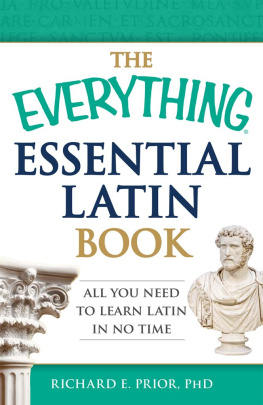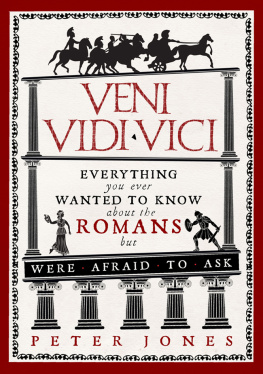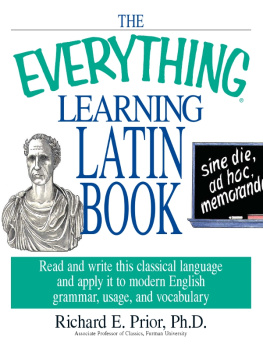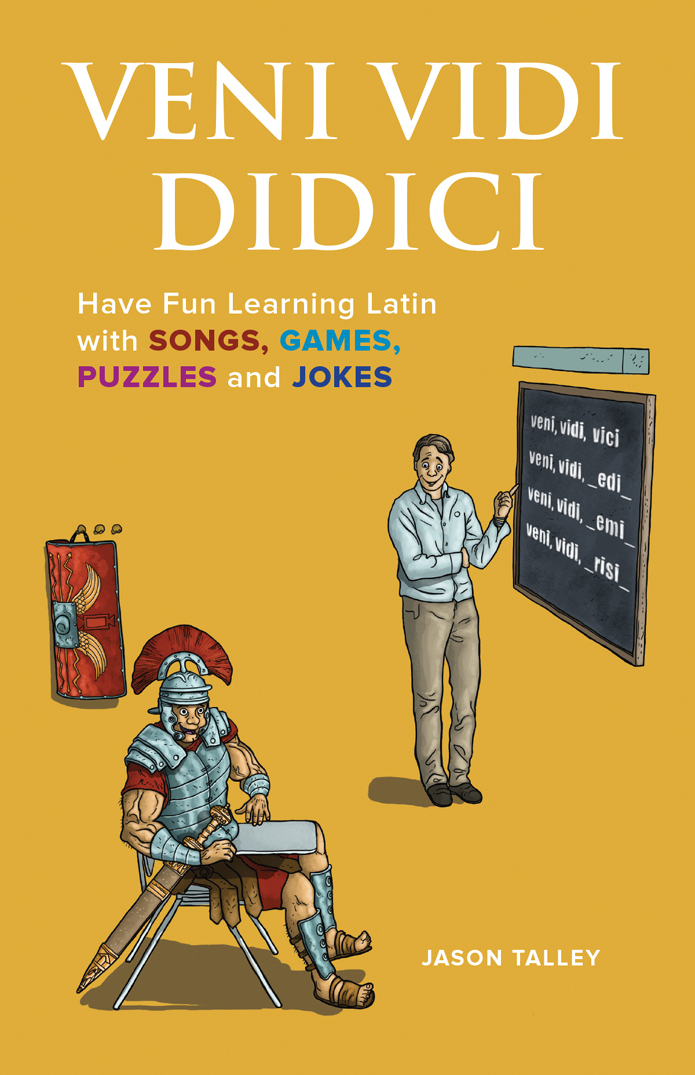
Text copyright 2017 Jason Talley. Design and concept copyright 2017 Ulysses Press and its licensors. All rights reserved. Any unauthorized duplication in whole or in part or dissemination of this edition by any means (including but not limited to photocopying, electronic devices, digital versions, and the Internet) will be prosecuted to the fullest extent of the law. Published in the United States by: Ulysses Press P.O. Box 3440 Berkeley, CA 94703 www.ulyssespress.com ISBN: 978-1-61243-711-8 Acquisitions: Casie Vogel Managing editor: Claire Chun Editor: David Sweet Proofreader: Shayna Keyles Front cover design: Rebecca Lown Interior design and layout: what!design @ whatweb.com Cover illustration: Valentin Ramon IMPORTANT NOTE TO READERS: This book is independently authored and published.
No endorsement or sponsorship by or affiliation with movies, celebrities, products, or other copyright and trademark holders is claimed or suggested. All references in this book to copyrighted or trademarked characters and other elements of movies and products are for the purpose of commentary, criticism, analysis, and literary discussion only. This book is for my wife, Sarah, who was my nearly constant companion during the research for and writing of this book (though sometimes she was asleep). This book is also for our children, Stella and Jet, future Latin speakers. TABLE OF CONTENTS Table of Contents
Guide

The first most common question I get as a Latin teacher is, Is that like Spanish or something? The second most common question is, Isnt that a dead language? I usually tell people that Hittite and Ancient Egyptian are dead and that Latin is only sleeping; we just need to wake it up. I have heard other teachers describe Latin as a zombie language.
The process of teaching Latin has also been referred to more benignly as being like programming a computer. Whatever analogy you care to use, the reports of Latins death and dullness have been greatly exaggerated. This little book is for anyone who shares in the belief that Latin is not a dead language, as it has been popularly described. While it is true that native Latin speakers are all dead, their language has continued to exist, grow, and evolve throughout the millennia. Latin was the language of the natural sciences, philosophy, and religion in Europe for centuries, and many American founding fathers were students of Latin. As recently as 100 years ago, Latin translation and even composition played a large part in the entrance exams to Ivy League universities.
If Latin is sleeping, it only has been for a few decades of the 20th century. Thats hardly a blink in the long history of Latin! The beginning decades of the 21st century have seen an increasingly growing surge of Latin enthusiasts pushing and prodding it to wake up. Tomorrows Latinist not only will translate and analyze the Latin of the past but will collaborate in creating the Latin of the future. This book is for anyone who wants to be part of writing that future. As soon as you begin learning any new skill, be it jamming on a didgeridoo, playing badminton, or shouting in Klingon, you start to build a part of your brain that specializes in that skill. Once that part has been created, the only way for it to grow is by exercising it, by practicing.
For languages, whether Klingon, Spanish, English, or Latin, you exercise by listening to or reading quality texts that are authentic and comprehensible. Speaking Latin with others can be a great way to get input and get feedback on your speaking or writing skills. This book gives you the tools you need to exercise and build your Latin brain. Throughout, you will find many different ways to perfect your pronunciation, practice speaking conversationally, and develop an appreciation of Latin literary styles. There are songs to sing, games to play, puzzles to solve, and jokes to tell. There are timeless quotessome well known, others obscurefrom some of the most preeminent Latin writers whose words and works were not completely lost to history, as well as excerpts from satirical and invective poetry written by some of the most scurrilous Roman poets.
There are even graffiti and bathroom scribbles, some of the last vestiges of the Vulgar Latin of the streets. There are tidbits on etymology and grammar for language nerds, and interesting facts from Roman history and mythology for the more serious scholar. This book is for curious students who want to supplement whats taught in their Latin course, for adventurous Latin teachers who want to introduce more speaking into their classrooms, for former students of Latin who are thinking about resuming their studies, and even for people who have never studied Latin before. It is the perfect book for Latin lovers old and new to build their Latin brains. HOW TO USE THIS BOOK This book is not meant to be read from ab malusque ad va (from beginning to end). If you are a tr (newcomer) and need to know the basics (or if you are a veteran who needs a refresher), I suggest that you start with the first four chapters, which will orient you to some basic Latin skills: pronunciation, dictionary use, basic conversation, and reading poetry.
Otherwise, the reader is invited to hop around to whichever sections are of most interest. I hope that many of the selections and topics will serve as a springboard from which the reader may start a unique journey, exploring all the varieties of work that is accessible with Latin, both ancient and modern. In Chapter I, you will learn how to pronounce the Latin you will read in this book. In Chapter II, you will learn how to use a Latin dictionary and make your own versions of famous proverbs. In Chapter III, you will learn how to talk to other people who know Latin. In Chapter IV, you will learn about Latin poetry and how to read the poems that appear in this book.
In Chapter V, you will find ancient Roman games to play. In Chapter VI, you will find songs to sing. In Chapter VII, you will find Latin graffiti and inscriptions. In Chapter VIII, you will find jokes to tell. In Chapter IX, you will find humorous excerpts from ancient authors. In Chapter X, you will learn how to roast your friends.
In the appendices, there is a page about Latin numbers and a list of the authors mentioned throughout the text. The capitalization standards have varied across time and texts. I learned that only proper nouns are capitalized, with even the first letter of a sentence left uncapitalized (gasp!) unless it was a proper noun. Some textbooks keep to this standard, some dont. In some Latin poetry texts, you will see capital letters at the beginning of lines. In some texts, modern capitalization standards are followed.
Similarly, the Romans did not have punctuation like ours, so punctuation standards of Latin texts have also been varied. You will see the following sidebars from time to time:  NBnt bene (NB) note well, mark well These are the most frequent sidebars, and are used to draw your attention to an important detail you must keep in mind, or just to give a fun fact.
NBnt bene (NB) note well, mark well These are the most frequent sidebars, and are used to draw your attention to an important detail you must keep in mind, or just to give a fun fact. 









 Text copyright 2017 Jason Talley. Design and concept copyright 2017 Ulysses Press and its licensors. All rights reserved. Any unauthorized duplication in whole or in part or dissemination of this edition by any means (including but not limited to photocopying, electronic devices, digital versions, and the Internet) will be prosecuted to the fullest extent of the law. Published in the United States by: Ulysses Press P.O. Box 3440 Berkeley, CA 94703 www.ulyssespress.com ISBN: 978-1-61243-711-8 Acquisitions: Casie Vogel Managing editor: Claire Chun Editor: David Sweet Proofreader: Shayna Keyles Front cover design: Rebecca Lown Interior design and layout: what!design @ whatweb.com Cover illustration: Valentin Ramon IMPORTANT NOTE TO READERS: This book is independently authored and published.
Text copyright 2017 Jason Talley. Design and concept copyright 2017 Ulysses Press and its licensors. All rights reserved. Any unauthorized duplication in whole or in part or dissemination of this edition by any means (including but not limited to photocopying, electronic devices, digital versions, and the Internet) will be prosecuted to the fullest extent of the law. Published in the United States by: Ulysses Press P.O. Box 3440 Berkeley, CA 94703 www.ulyssespress.com ISBN: 978-1-61243-711-8 Acquisitions: Casie Vogel Managing editor: Claire Chun Editor: David Sweet Proofreader: Shayna Keyles Front cover design: Rebecca Lown Interior design and layout: what!design @ whatweb.com Cover illustration: Valentin Ramon IMPORTANT NOTE TO READERS: This book is independently authored and published.  The first most common question I get as a Latin teacher is, Is that like Spanish or something? The second most common question is, Isnt that a dead language? I usually tell people that Hittite and Ancient Egyptian are dead and that Latin is only sleeping; we just need to wake it up. I have heard other teachers describe Latin as a zombie language.
The first most common question I get as a Latin teacher is, Is that like Spanish or something? The second most common question is, Isnt that a dead language? I usually tell people that Hittite and Ancient Egyptian are dead and that Latin is only sleeping; we just need to wake it up. I have heard other teachers describe Latin as a zombie language.  NBnt bene (NB) note well, mark well These are the most frequent sidebars, and are used to draw your attention to an important detail you must keep in mind, or just to give a fun fact.
NBnt bene (NB) note well, mark well These are the most frequent sidebars, and are used to draw your attention to an important detail you must keep in mind, or just to give a fun fact.